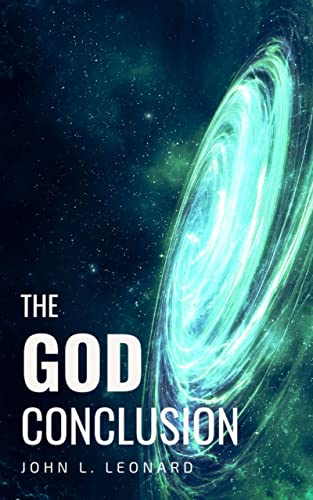Truth be told, I’d prefer to never have an argument.
I would prefer a calm, polite discussion to an argument, every time. Nevertheless, when you get into a conversation with an atheist, unless it is my friend The Faithiest Atheist, the conversation will rather quickly become adversarial, and more akin to an argument than anything else.
For example, on The God Conclusion podcast, I was describing to my atheist guest how I’d managed to create a binary alternative regarding the origin of the universe by saying the universe (and life) were either planned or unplanned. Planning requires a designer and the alternative requires order to come from chaos for no particular reason. My guest didn’t like this argument and claimed that I’d committed a logical fallacy known as a false dichotomy by violating the law of the excluded middle, but my response was there is no excluded middle because the only alternative to an event being an accident is that the event was planned and thus happened on purpose.
In other words, there are no planned accidents. That idea is an oxymoron.
It wasn’t in the podcast — the exchange took place on The God Conclusion Facebook page, but I’m virtually certain this very same atheist and I were discussing evolution versus intelligent design and I was in the process of conceding that while macroevolution is a competitive theory, it is inferior to intelligent design when my adversary interrupted and claimed that evolution was the only alternative, and intelligent design was simply not available for serious consideration. I confess his grotesque hypocrisy didn’t occur to me immediately; it has taken several days for me to realize he’d committed the false dilemma fallacy, where a premise erroneously omits one or more potential (and certainly viable) options. Evolution is an undirected process. Anyone who claims that evolution can be a directed process is being deliberately misleading, because “directed evolution” is performed by an intelligent agent, which represents intelligent design.
Artificial selection IS intelligent design. We even know the identity of the designer.
The question is, can undirected processes lead to the emergence of a new kind of animal? If Darwin’s theory is really true, then undirected processes do literally allow monkeys to make men, as he famously jotted in his notebook. My biology thought experiment ought to give reasonable people cause for concern about their presumption that undirected processes can lead to remarkable improvements through mutation and adaptation, but that’s neither here nor there.
What we want to know is this: why should intelligent design be excluded when it is the most logical conclusion drawn from observations of the natural world? When we look at eyes and wings, or complex processes such as echolocation navigation, we are told by the “experts” to ignore the most logical conclusions drawn from simple observation in favor of the careful inference of biologists. Why should we trust an opinion over what we can see with our own eyes and reason using our own common sense? Should we trust other people to think for us?
If I had tried to argue with this same atheist that the universe had been created by God and there were no other possible explanations, I would have been harshly criticized, and rightfully so. There is a chance that the universe formed by accident and life spontaneously created itself somehow from inanimate matter, but the odds of that are extremely low. Even so, the odds of a universe created by extreme good luck are slightly better than zero, and deserve some acknowledgement.
By the same token, claiming that evolution is the only possible explanation for the diversity of life we can observe is patently absurd, because there are only three basic tools we can use to compare one animal to another: comparative anatomy, the fossil record, and DNA analysis. To say that the only possible explanation for the complexity of DNA is a lucky, unguided process is absolutely ridiculous. DNA is like God’s Legos — He can create new patterns and a rich diversity of living organisms simply by reordering four basic nucleotides known as adenine, cytosine, guanine, and thymine.
DNA is twice as complex as binary code in a computer. A computer only needs to know zeros or ones, but DNA must manage four different nucleotides, and they only fit together in certain patterns. There are far more constraints on how DNA can be organized versus the limited options provided by machine language. Yet machine language is universally understood to be the product of intelligent design, and DNA is believed by many to be the product of random, unguided processes.
You can argue that evolution makes more sense, and we can have that debate if you want, but you cannot claim that evolution is the only game in town, because it simply isn’t. Evolution describes how existing things might change. Creation describes the origin of things. Life cannot evolve before it exists. Elementary logic dictates that before evolution can even become possible, creation (meaning the origin of the universe and the origin of life) has already occurred.
This is all just common sense.


Speak Your Mind